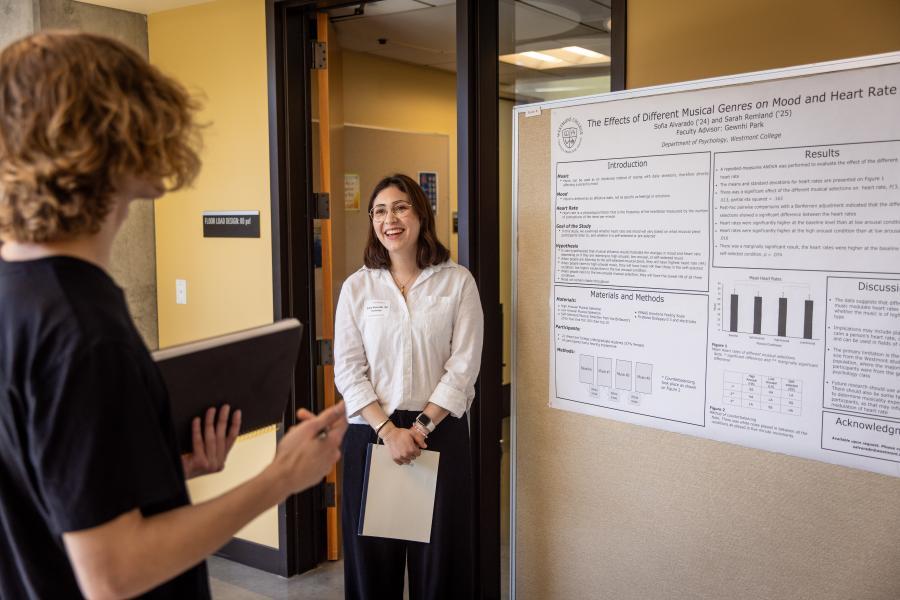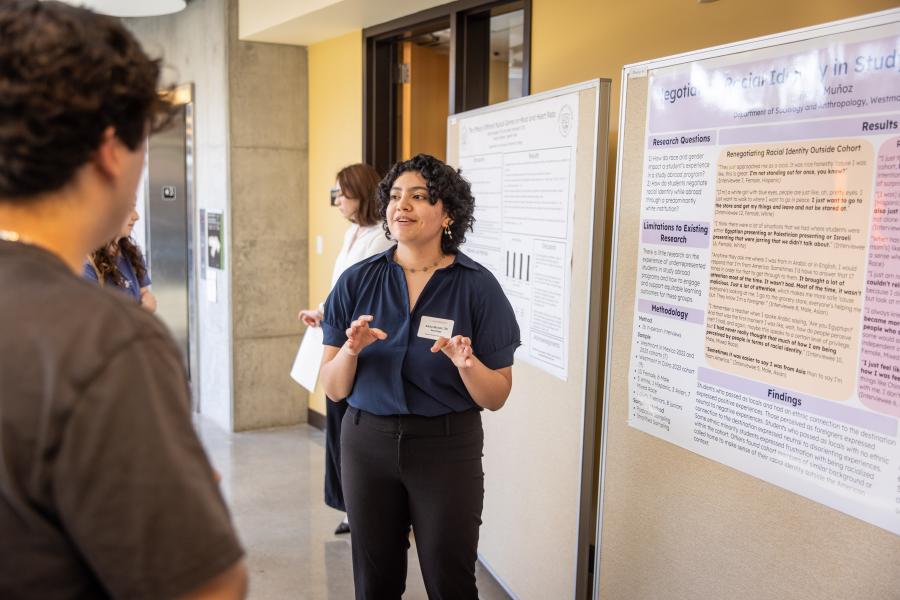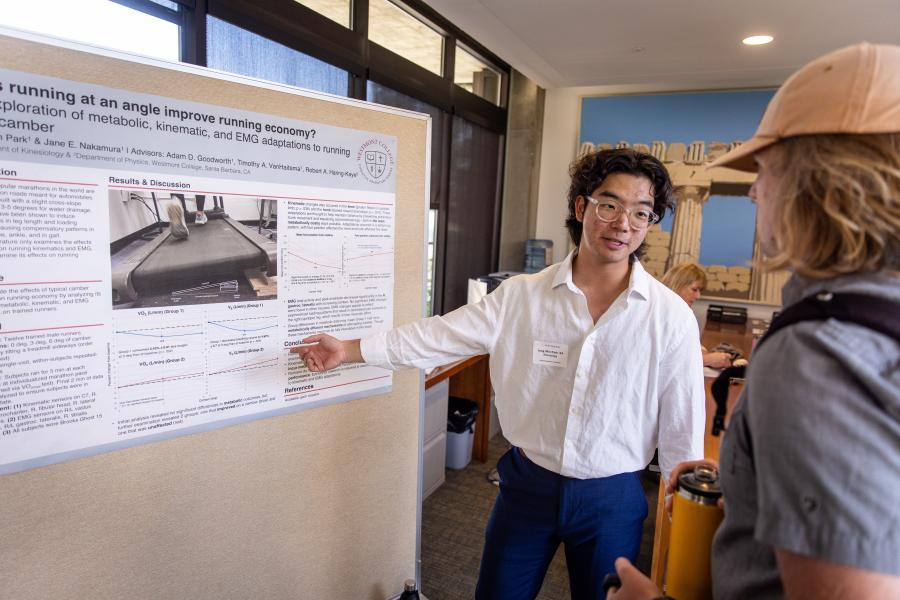Students ‘Reach Beyond Boundaries’

By
Scott Craig
Students presented their findings from research projects that spanned topics from running on slanted surfaces, the effects of music on heart rate, subliminal advertising, and racial identity in study-abroad programs at the Spring Student Research Symposium on April 18 in the Winter Hall Atrium.

Kim Denu, Westmont provost and dean of the faculty, spoke to the more than 40 student researchers and attendees, emphasizing the importance of research and highlighting its potential to affect various aspects of life, including social justice and advocacy work.
“I had a professor in a research class say, ‘Things are not always as they appear,’” she said. “Part of the work of research is to ask the unasked questions or to solve the unsolved problems through investigative techniques. The work that you’re doing is exploring and reaching beyond boundaries that may or may not have been explored before.”

Sofia Alvarado ’24 examined the effects of different musical genres on mood and heart rate on 21 participants, who were subjected to five minutes of Billboard’s 2016 Year End Hot 100 chart top 10.
Alvarado says the data suggests that different types of music modulate heart rates based on whether the music is of high or low arousal type. “It shows that listening to slower, calmer music will calm you down physiologically,” she says.
Sociology student Karla Munoz ‘24 interviewed 16 students who had participated in a Westmont in Mexico or Westmont in Cairo program to examine how race and gender affect a student’s experience in a study-abroad program. She says that studying abroad creates multi-layered in-groups and out-groups that arise from the racial ratio of the cohort and the ability to ethnically pass in the host country. “Some students who perceived themselves as an out-group struggled with finding a sense of belonging and support,” Munoz said.

Jong Min Park’s research, “Does Running at an Angle Improve Running Economy?” examined the results of 12 men who ran on a special treadmill adjusted to varying angles. The project explored the metabolic, kinematic and EMG adaptations to running on a 3-degree and 6-degree camber.
“We found that despite all these effects, there was no overall change in the economy, which was pretty positive,” the senior kinesiology student said. “Because if it were changing the way we run, there must be some change in the way we breathe. We found a group actually improved while doing that. Bottom line, runners don’t need to stay on the flat part of the road to preserve performance.”
Psychology student Aidan Holly ’24 had 51 test subjects answer questions about themselves to rank them through a revised achievement motivation scale and then view two short video advertisements about an energy drink. The videos —one using humor while the other featured themes of success —each included a subliminal message. Holly hypothesized that those who subliminally saw a message of SUCCESS, WIN or MOTIVATE would be most likely to choose achievement-related products. “We found that every woman chose that achievement-motivation advertisement, while and men were more split 50-50,” he said. “There was probably something about the neutral advertisement that was off-putting toward women. If I were to redo it, I’d try a different ad and see if I got similar results.”